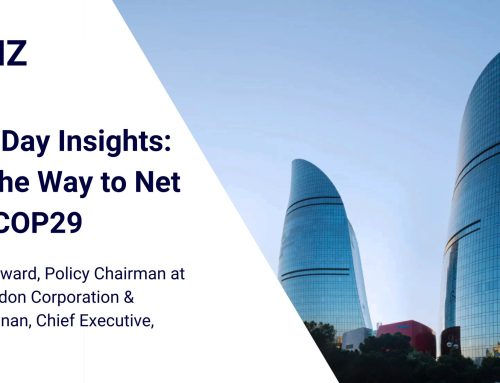As we step into 2024 amidst growing climate challenges, the prominence of transition finance becomes more pronounced. Assisting high-carbon companies in their transition towards achieving net-zero emissions is a crucial aspect of combating climate change. It is crucial that banks, investors, and policymakers enhance their support in this endeavour.
Transition finance has become a focal point, poised to be one of the most significant topics this year. Mark Carney, the Special Envoy on Climate Action and Finance for the United Nations, introduced the term in a COP28 panel discussion, saying “A complete realm of transition finance is currently being developed as we converse.”
Transition finance refers to financial products and services that support higher emitting companies and activities to decarbonise over time. Typically employed by companies aiming to diminish greenhouse gas emissions, these tools ought to be integrated into a credible decarbonization strategy aligning with global climate and nature objectives.
Currently, discussions among banks, insurers, and asset managers are underway to establish guidelines for transition finance, though a consistent standard has yet to emerge, which is one of the obstacles to expanding transition finance. Some examples include GFANZ Financial Institution Net-zero Transition Plans, Climate Bonds Initiative Financing Credible Transitions and the Standard Chartered Transition Finance Framework 2023.
In the UK, the Department for Energy Security & Net Zero and the Treasury are currently carrying out a Transition Finance Markets Review. The Review aims to explore the necessary steps for the UK financial and professional services ecosystem to establish itself as a premier centre for transition financial services. This involves enabling both UK and international companies and investors to make investments that align with credible net zero pathways.
A blended finance approach is needed to ensure a fair transition
A strategic approach to the transition is blended finance. Blended finance involves strategically using public finance to attract additional private funding for sustainable development in developing countries. The primary advantage of blended finance transactions is their active ability to unlock funding for investments in areas often considered ‘too risky’ for low-risk-seeking investors or where returns do not align with the risk appetite of investors seeking higher risk. Nevertheless, this approach is also important for the UK as it represents a mutually beneficial situation for both the private and public sectors, playing a crucial role in bridging the climate finance gap and facilitating substantial mobilization of commercial capital towards critical, impactful climate infrastructure projects, among others. If done well, a blended finance approach can achieve optimal utilization of taxpayers’ funds and generate enduring benefits in social housing, education, healthcare, and various other sectors.
The role of private capital
At COP28 last year, the United Arab Emirates’ Climate Finance Fund demonstrated how public-private partnerships could actively mobilise capital to finance the transition to a net-zero economy. The global economic transition to net zero carbon emissions is fully underway within the larger corporate sector, with many financial institutions publicly committing to decarbonise their Scope 3 or ‘financed emissions’. Private capital plays a pivotal role in transition finance by providing essential funding and investment support for initiatives that facilitate the shift towards sustainable and environmentally responsible practices. This involvement extends across various sectors, enabling businesses and projects to adopt measures that align with transition goals, such as achieving a low-carbon economy or embracing renewable energy sources.
Supply chain data is crucial for credible transition plans
Credible transition plans need credible data. It is vital that financial institutions engage with their value chains to increase the development and disclosure of comprehensive transition plans. However, the current disclosure frameworks are mainly aimed at large companies, not small ones, meaning SMEs don’t have any proportionate guidance or decarbonisation strategies to disclose their emissions. Without dominant standards and frameworks for SME emissions reporting, there is no consistent approach to collecting, measuring, and storing data and no common process for reporting GHG emissions. Moreover, many SMEs don’t have enough resources or incentives to engage in decarbonisations, which presents a challenge for large companies as they cannot access quality data from SMEs in their supply chain and portfolios to report on their Scope 3 emissions. Financial institutions must leverage existing relationships with their SME clients and support them in their transition journey. This support should encompass both gradual and transformative solutions to reduce emissions. Failing to do so will result in financial institutions falling short of their own commitments, leading to potential reputational risks and exposing themselves to transition and physical risks.
Additionally, financial institutions can engage with our Perseus programme which will allow them to access reliable and standardised SME energy data that will improve their ability to assess and manage climate-related risks. This will help corporates identify potential vulnerabilities, develop mitigation strategies, and ensure the long-term sustainability of their operations and investments. This alignment can also enhance the credibility and reliability of banks’ climate risk management practices, which are increasingly valued by investors and stakeholders.
Contact
Elena Pérez Celis,
Head of Policy & Public Affairs



